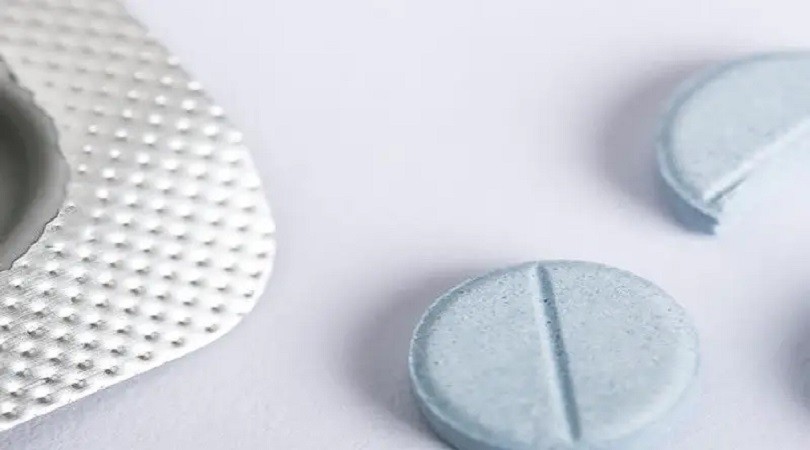Last Updated on January 6, 2025
Yes, it is safe to eat flounder while pregnant, as long as it is cooked properly. Flounder is a low-mercury fish that provides essential nutrients like omega-3 fatty acids, protein, and vitamins to support a healthy pregnancy.
However, it is important to consume fish in moderation and avoid raw or undercooked flounder to reduce the risk of foodborne illnesses. Pregnant women are advised to limit their intake of high-mercury fish like shark, king mackerel, and swordfish. Including flounder as part of a balanced diet can contribute to the overall health and well-being of both mother and baby.
Remember to always consult with your healthcare provider for personalized dietary recommendations during pregnancy.

Flounder: A Safe Seafood Choice During Pregnancy
Flounder is a safe and healthy seafood choice during pregnancy, providing essential nutrients without compromising your health or the baby’s development. It can be enjoyed as part of a balanced diet, but make sure to consume it in moderation and ensure it is properly cooked to avoid any potential risks.
Flounder is a delicious and nutritious fish that can be a safe seafood choice for pregnant women. It offers a range of essential nutrients that are beneficial for both the mother and the developing baby. With its delicate flavor and versatile cooking options, flounder can be a tasty addition to a pregnancy diet.
Here’s why flounder is a great seafood option for expectant mothers:
Nutritional Value Of Flounder During Pregnancy:
- Omega-3 fatty acids: Flounder is a good source of omega-3 fatty acids, particularly eicosapentaenoic acid (EPA) and docosahexaenoic acid (DHA). These fatty acids play a crucial role in the development of the baby’s brain and eyes.
- Protein: Flounder is a lean source of protein, which is essential for the growth and development of the baby’s tissues and cells.
- Vitamin B12: Flounder is rich in vitamin B12, which is essential for nerve function and the production of red blood cells.
- Vitamin D: Flounder is a natural source of vitamin D, which helps the body absorb calcium and supports the baby’s bone development.
- Minerals: Flounder contains important minerals like iodine, zinc, and selenium, which contribute to the proper functioning of the thyroid gland and support the immune system.
Benefits Of Consuming Flounder While Pregnant:
- Brain and eye development: The omega-3 fatty acids found in flounder are crucial for the development of the baby’s brain and eyes. Including flounder in the diet can help ensure an adequate supply of these important nutrients.
- Protein for growth: Flounder provides a healthy dose of protein, which is essential for the growth and development of the baby’s tissues and cells.
- Healthy bones: Flounder is a natural source of vitamin D, which aids in the absorption of calcium and supports the baby’s bone development.
- Boosts the immune system: The combination of minerals found in flounder, such as iodine, zinc, and selenium, can help support the immune system of both the mother and the baby.
- Low in mercury: Flounder is a low-mercury fish, making it a safe seafood option during pregnancy. High levels of mercury in fish can be harmful to the developing baby’s nervous system, so it’s important to choose low-mercury options like flounder.
Incorporating flounder into your pregnancy diet can provide a range of nutritional benefits for both you and your baby. Remember to always cook flounder thoroughly and choose high-quality, fresh fish to ensure both safety and flavor.
Potential Risks And Concerns
Flounder consumption during pregnancy raises concerns due to potential risks. It’s important to be cautious about mercury levels and proper cooking to ensure optimal safety for expecting mothers.
Mercury Levels In Flounder And Its Impact On Pregnancy
Flounder is a popular fish choice for many individuals, including pregnant women. However, it’s important to be mindful of the potential risks and concerns associated with consuming flounder during pregnancy. One of the main concerns is the presence of mercury, which can pose a threat to the developing fetus.
Here are some key points to consider:
- Mercury is a naturally occurring element that can find its way into water bodies, including the oceans where flounder reside. Industrial pollution also contributes to the presence of mercury in our environment.
- Flounder, being a predatory fish, can accumulate mercury in its body over time. This is due to their diet, as they feed on smaller fish and organisms that may contain mercury themselves.
- High levels of mercury in pregnant women can harm the developing nervous system of the fetus. This can lead to cognitive and developmental issues in the child.
- It is recommended that pregnant women, especially those who are at higher risk due to their location or dietary habits, limit their consumption of high-mercury fish, including flounder.
Other Contaminants To Be Aware Of When Consuming Flounder
Aside from mercury, there are other contaminants that pregnant women should be aware of when consuming flounder. These contaminants can also have negative effects on pregnancy. Here are some key points to consider:
- PCBs (polychlorinated biphenyls) are chemicals that were previously used in electrical equipment. Although their use has been banned, they can still persist in the environment. Flounder may contain PCBs due to their exposure to contaminated water.
- High levels of PCBs in pregnant women have been associated with adverse effects on the immune system, hormone regulation, and neurological development of the fetus.
- To minimize exposure to PCBs and other contaminants, pregnant women should consider sourcing their flounder from reputable suppliers who follow strict quality control measures.
- It is important to note that cooking methods can also impact the levels of contaminants in flounder. Grilling or baking the fish on a rack can help reduce the amount of fat, where some contaminants may accumulate.
By being aware of the potential risks and concerns associated with consuming flounder during pregnancy, women can make informed decisions about including this delicious fish in their diet while ensuring the health and well-being of their unborn child. Remember, it’s always best to consult with a healthcare provider before making any significant dietary changes during pregnancy.

Safe Ways To Enjoy Flounder During Pregnancy
Discovering safe ways to enjoy flounder during pregnancy is important for expecting mothers. Flounder’s low mercury content and high omega-3 fatty acids make it a nutritious choice that can be incorporated into a balanced diet. Follow recommended guidelines for cooking and ensure the fish is properly sourced to enjoy its benefits without compromising on safety.
With its firm texture, mild flavor, and numerous health benefits, flounder can be a delicious addition to a pregnant woman’s diet. However, it’s essential to understand the safe ways to enjoy flounder during pregnancy to minimize any potential risks. Here are some guidelines to follow:
Cooking Methods That Reduce The Risk Of Contamination:
- Cook the flounder thoroughly: Ensure that the fish is cooked until it reaches an internal temperature of 145°F (63°C). This helps eliminate any harmful bacteria or parasites that may be present.
- Choose low-risk cooking methods: Opt for cooking methods such as baking, steaming, or grilling, as they require high heat, which helps kill bacteria and parasites effectively.
- Avoid raw or undercooked preparations: It’s crucial to steer clear of consuming raw or undercooked flounder, as it may contain harmful microorganisms that can pose a risk to your pregnancy.
Appropriate Portion Sizes And Frequency Of Consumption:
- Follow guidelines for portion sizes: When enjoying flounder during pregnancy, moderation is key. Stick to appropriate portion sizes, which typically range from 4 to 6 ounces (113 to 170 grams) per serving.
- Include flounder in a balanced diet: Flounder can be a healthy protein source, but it’s important to consume a variety of foods to meet your nutritional needs during pregnancy. Incorporate flounder as part of a well-rounded, nutrient-rich diet.
- Practice moderation in frequency: While it’s safe to include flounder in your pregnancy diet, it’s recommended to limit your consumption to two to three servings per week. This ensures you receive the benefits of fish while minimizing any potential exposure to environmental contaminants.
Remember, it’s always a good idea to consult with your healthcare provider or a registered dietitian for personalized advice regarding your diet during pregnancy. By following these safe ways to enjoy flounder, you can indulge in its flavorsome goodness while taking care of yourself and your baby.
Frequently Asked Questions
Is Flounder Ok While Pregnant?
Flounder is safe to eat during pregnancy, but ensure it is fully cooked to prevent any risks.
Is Flounder High In Mercury?
Flounder can contain high levels of mercury.
What Fish To Avoid While Pregnant?
Avoid fish high in mercury like shark, swordfish, king mackerel, and tilefish while pregnant.
What Fish Can You Eat While Pregnant?
Safe fish to eat during pregnancy include salmon, trout, sardines, herring, and anchovies.
Can You Eat Flounder While Pregnant?
Yes, pregnant women can safely consume flounder as it is low in mercury and a good source of nutrients like omega-3 fatty acids. However, it is important to consume it in moderation and ensure it is cooked thoroughly to avoid any foodborne illnesses.
Conclusion
Flounder can be a safe and nutritious seafood option for pregnant women when consumed in moderation. With its low mercury content and high omega-3 fatty acid profile, flounder offers a range of health benefits, including supporting fetal brain and eye development.
However, it is crucial to ensure that the fish is sourced from reputable suppliers to minimize the risk of exposure to harmful contaminants. Pregnant women should also consider cooking methods that preserve the fish’s nutritional value while minimizing the intake of additional fats and sodium.
By consulting with a healthcare professional and practicing moderation, pregnant women can enjoy the many nutritional benefits that flounder has to offer. So go ahead and include flounder in your pregnancy diet, knowing that you are making a healthy choice for both you and your baby.











